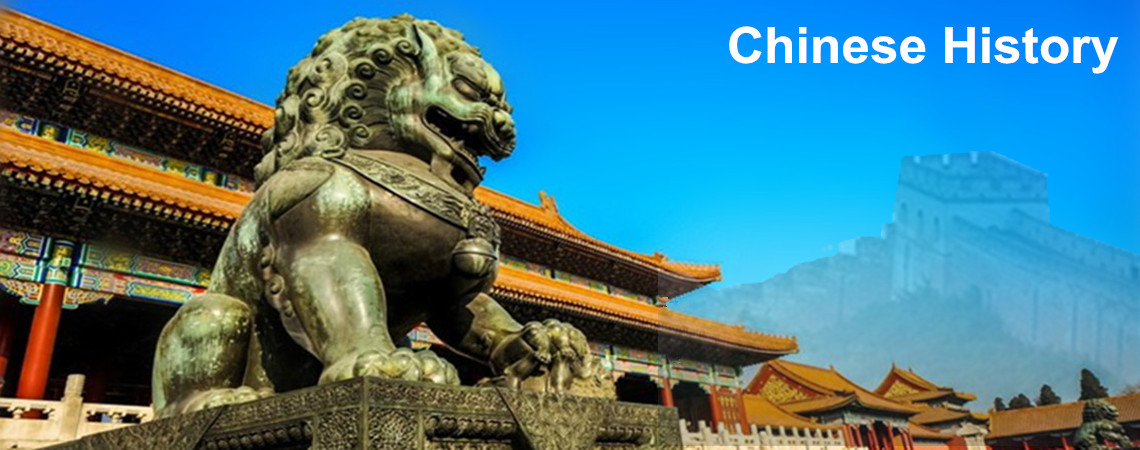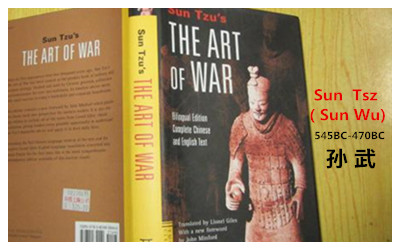
Sun Tzu: The Art of War
Sun Wu, known as Sun Tzu (574 BC-470 BC), little is known beyond his birth in the state of Ch'i and service to King Ho-lu of Wu. But he was a military specialist active during the turbulent late Chou dynasty.
Sun Wu is the reputed author of The Art of War, which some consider to be the best single book ever written on the subject. Recent excavations of ancient manuscripts of Sun Tzu in China have confirmed the great antiquity of the text attributed to him. Long studied in Asia, Sun Tzu's work became known in the West only in the late eighteenth century and was not properly translated until the twentieth.
 The Art of War , written by Sun Zi or Sun Tzu ( 孙子) is the most famous work on military operations in ancient China. Being the oldest military treatise in the world, it is one of the greatest cultural legacies of the Chinese nation. Only the Prussian Clausewitz's On War may compare with it. But On War (Von Kriege) was written more than 2,000 years later. Therefore, Sun Tzu's The Art of War is a classic on military operations and the most influential in the world today.
The Art of War , written by Sun Zi or Sun Tzu ( 孙子) is the most famous work on military operations in ancient China. Being the oldest military treatise in the world, it is one of the greatest cultural legacies of the Chinese nation. Only the Prussian Clausewitz's On War may compare with it. But On War (Von Kriege) was written more than 2,000 years later. Therefore, Sun Tzu's The Art of War is a classic on military operations and the most influential in the world today.
The Art of War actually discusses how to win, which is not limited to military operations. Its significance has been enlarged to many fields, such as commercial affairs, management, athletic competitions, etc. Everyone who reads it carefully may acquire the key to victory.
Volume One - The Art of War
Sun Tzu said: What is war? It may be described as one of the most important affairs to the state. It is the ground of death or life of both soldiers and people, and the way that governs the survival or the ruin of the state. So we must deliberately examine and study it.
Volume Two - The Art of War
Sun Tzu said: Managing a big army is in principle the same as managing a small one: it is a matter of organization. Directing a large army is the same as directing a small troop: it is a matter of strict and impartial command. What makes the whole army under attack not suffer defeat is a matter of adopting normal and special tactics. Troops thrown against the enemy like a grindstone against eggs is a matter of staying clear of the enemy's main forces and striking at his weak points.
Volume three - The Art of War
Sun Tzu said: There are different kinds of terrain in nature. Some terrain is easily accessible, some is entrapping, some temporizing, some constricted, some precipitous and some distant.
In this well-known book, Sun Tzu puts forward many important principles in military operations. He says, "winning a victory and subduing the enemy without fighting is the highest excellence." War is not for slaughter; if you win without fighting, the way you can do so is the greatest military strategy, Sun Tzu in his book stresses, "To attack where the enemy is unprepared and hit when it is unexpected" is another wise observation." Military operations should aim at speedy victory and not prolonged campaigns." "Know both the enemy and yourself, you will fight a hundred battles without danger of defeat." All these principles are, unquestionably, significant even in military strategies in the world today.







 Ask Questions ?
Ask Questions ?